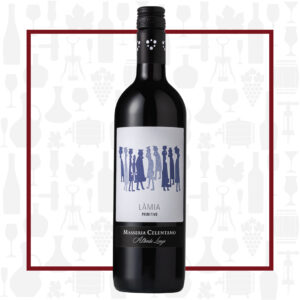Cellar Profile
Alberto Longo’s 3rd generation farm and winery is located in northern Puglia, outside of the town Lucera. This is a farm in the full sense of the word, producing pasta, olive oils, fruits and vegetables. Alberto’s driving passion is to bring international attention to his native territory of Daunia. There are two separate vineyard sites, 7 hectares located in the territory of the DOP Cacc’e Mmitte di Lucera and 25 hectares in the Masseria Celentano. Here, sustainability is paramount. The property uses a geothermal plant and solar panels and has a strict water usage policy. These wines, made by the brilliant winemaker Graziano Grassini, have a modern sensibility to go with the telltale rusticity and bombastic nature and style from the region.
Region
Close to the Adriatic Sea and the Gulf of Taranto, the climate here is hot and dry with temperatures regularly exceeding 40°C. The Daunia region, in Northern Puglia, receives stiff Balkan winds, which help moderate temperatures during the day. With a sizeable diurnal shift and cool evenings, acid levels are maintained despite the propensity for grapes to fully ripen and achieve high alcohol levels. Plantings are generally done on hillsides, where drainage is superior than the flatter valley floor vineyards and where canopy can be used to protect fruit from the midday sun. Puglia is home to some well-known indigenous varietals, such as Primitivo, Negroamaro, Nero di Troia, Bombino and Falanghina. The wines produced are typically high in tannins and high in alcohol, with a bold, fruity taste.
Vineyard
The grapes used in this wine come from winery properties around the northern edge of Manduria, an area well-known for quality Primitivo production that give wines of power and richness. Organically farmed vines, planted in loamy soil, are Guyot-trained with high density, to stress the vines and lower yields. The soils are fairly calcareous, with sandy loam that heightens primary fruit and gives expressive wines.
Varieties
Made 100% from Primitivo, a dark-skinned grape known for producing inky, tannic wines. Although there have been contentious and long-running debates about the variety’s geographical origins, there is little question that Primitivo’s modern-day home is in southern Italy, particularly Puglia. DNA research carried out by Carole Meredith of the University of California at Davis from the early 1990s to 2002 (known as the Zinquest) confirmed that Zinfandel is identical to Italian Primitivo.
Winemaking
Harvested in the cool of the evening, the grapes are sorted and crushed into stainless steel for an extended maceration on the skins, to extract balancing grip and a wonderful plummy pigment. Fermentation and malolactic conversion take place in stainless steel. The wine then spends 3 months in concrete, to open and soften. After bottling, it is aged a minimum of 3 months before release.
Tasting Notes
Bright, deep purple in colour. Rich and extracted on the nose with notes of blackberries, plum, mocha and a touch of bramble. The palate is velvety, smooth and generous, with some tannic grip and earthy elements. The finish is long and rich, with a tomato-like savoury character. Serve at cellar temperature with braised meats, hearty stews or robust soft cheeses.

 info@buyersandcellars.ca
www.buyersandcellars.ca
info@buyersandcellars.ca
www.buyersandcellars.ca